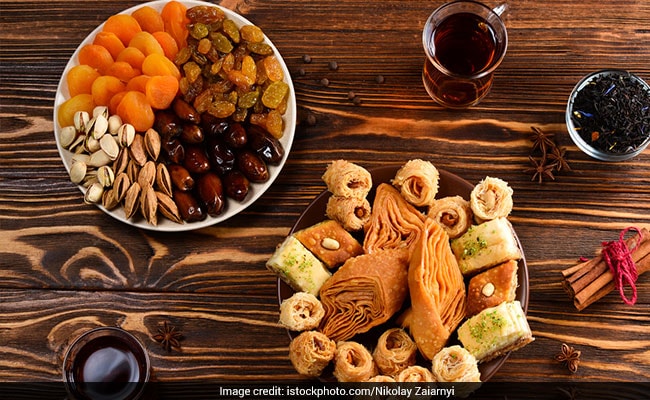
The holy month of Ramadan, or Ramzan, started on 17 May, 2018. This auspicious month of Ramadan is very significant in Islamic faith. It is said that during this pious month the gates of heaven are open while the devils are chained behind the closed doors of hell. It was in the month of Ramadan, that the Quran was first revealed to Prophet Muhammad on the glorious night of Laylat al-Qadr. Muslims across the world, wake up early, read their prayers and observe ritualistic fasts (roza). The fasts are a mark of devotion towards the God, a symbolic way to let go of worldly pleasures. During these auspicious days, People wake up early in the morning to eat sehri and then refrain from taking any morsel of food or a sip of water the entire day, until the sunset. In the evenings they gather together for Iftar and break their fasts. Let's learn more about iftar and what are the best foods we can eat to break the fast with.
Iftar literally means to 'break'. In the context of Ramadan fasting, it means to break the day long fast. At sunset, families gather to break the fast with a meal known as Iftar. But, before heading for Iftar they break their fast with dates, after which they adjourn for Maghrib prayer - one of the final prayers for the day. It is said that Prophet Muhammad broke his fast with three dates and water.
(Also Read: Ramzan Special Sharbats You Can Prepare At Home)
Kebabs, biryanis, haleem, korma, sherbets and desserts are some of the staples you would find across an Iftar spread. But, an Iftar spread could be both simple and grand. The idea is not to make the feast as lavish as possible, but it is a mode of attaining spiritual fulfillment. This is why, sharing the food with the needy is such an important facet of the feast. The spirit of Zakat or charity has been spoken in the oldest of Islamic scriptures. It is encouraged to reach out to the needy and poor and make sure that they are also included, especially if it is community gathering.
Here are 10 best Iftar snacks you can try making at home.
Ramadan 2018: Significance Of Iftar
Iftar literally means to 'break'. In the context of Ramadan fasting, it means to break the day long fast. At sunset, families gather to break the fast with a meal known as Iftar. But, before heading for Iftar they break their fast with dates, after which they adjourn for Maghrib prayer - one of the final prayers for the day. It is said that Prophet Muhammad broke his fast with three dates and water.
(Also Read: Ramzan Special Sharbats You Can Prepare At Home)

Ramadan 2018: At sunset, families gather to break the fast with a meal known as Iftar
Kebabs, biryanis, haleem, korma, sherbets and desserts are some of the staples you would find across an Iftar spread. But, an Iftar spread could be both simple and grand. The idea is not to make the feast as lavish as possible, but it is a mode of attaining spiritual fulfillment. This is why, sharing the food with the needy is such an important facet of the feast. The spirit of Zakat or charity has been spoken in the oldest of Islamic scriptures. It is encouraged to reach out to the needy and poor and make sure that they are also included, especially if it is community gathering.
Here are 10 best Iftar snacks you can try making at home.
Ramadan Mubarak everybody!
Track Latest News Live on NDTV.com and get news updates from India and around the world

